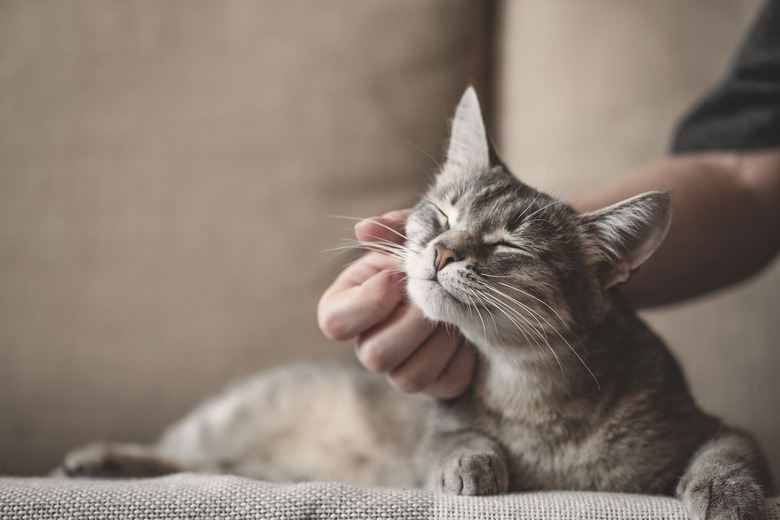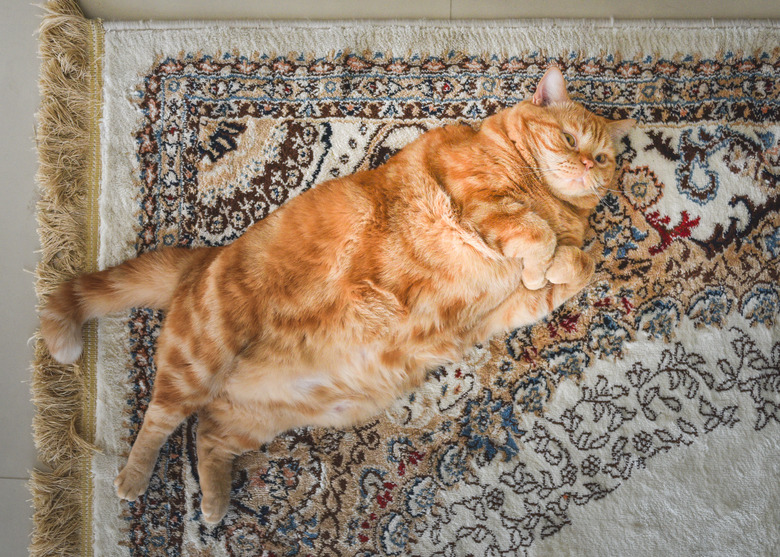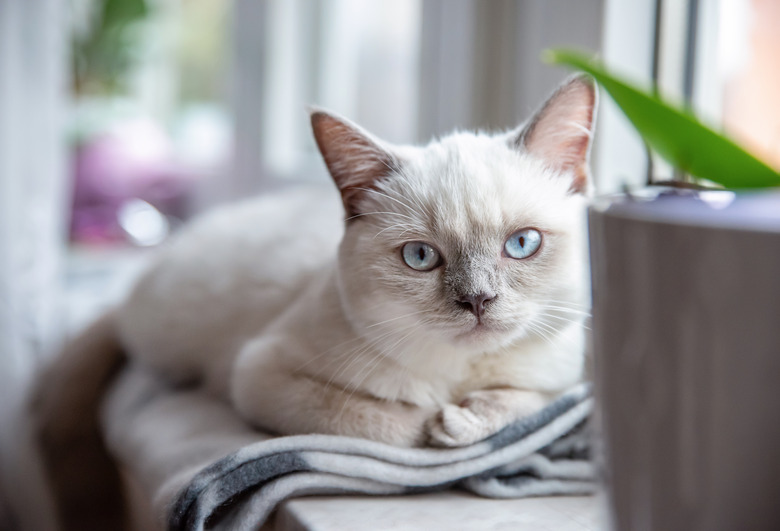Home Remedies For Feline Gas
Cats, as with humans, may suffer from excess intestinal gas, usually because of their diet. While cats are typically less gassy than dogs, even occasional indigestion can make staying in the same room with a flatulent cat almost unbearable. Fortunately, for both you and your feline, you can take steps and use some home remedies that may offer gas relief for cats.
While a little gas is normal for cats and kittens, excessive gas can be a sign of gastrointestinal problems. You may need to consult your veterinarian to get gas relief for cats.
Give your cat exercise
Give your cat exercise
If you have a secure outdoor area for your cat to play in, encourage them to exercise after mealtime and before they come back indoors. Roll a soft ball or pull it behind you on a string to get his attention. A little exercise will quicken the digestive process. In addition, playing outdoors may prompt your cat to move their bowels, further reducing their risk of passing gas.
Change mealtime habits to prevent gulping
Change mealtime habits to prevent gulping
Sometimes cats will gulp down their food if they fear a scarcity of resources or if they are competing for food with another cat or dog in the home. When cats or kittens gulp down food, they swallow air along with it, causing excess food to be in their body before it digests. Try feeding your cat two or three small meals spread out over the course of the day instead of feeding them a larger amount only once per day. Feed your cat in an area away from other household pets to reduce competition over resources. You could even purchase a slow feeder that makes your cat "work" for their food (by batting around a toy), to slow down their gulping habits.
Change your cat's diet
Change your cat's diet
In addition to your cat's mealtime habits, their diet may be the cause behind their gas. Some cat foods include ingredients that are harder for cats to digest, including soybeans, beans, peas, and corn. Compare the labels on similar cat food products. Ingredients appear in the order of amount so a cat food with more soybeans, peas, or corn will list the ingredient higher on the list than another brand with fewer of these ingredients.
Avoid dairy products
Avoid dairy products
Cow's milk is a common trigger of feline flatulence since an adult cat does not produce the lactase enzyme necessary for digesting milk lactose. In addition to passing gas, your cat may experience diarrhea. Eliminate dairy or give your cat lactose-free milk to drink.
Don't feed cats table scraps
Don't feed cats table scraps
While it's fun to include your beloved four-legged friend during family meals, you should not feed your cat table scraps. Many human foods are not cat-safe, and cats may have a hard time digesting what you're feeding them (even when what you feed them is cat-friendly). Make sure your cat isn't getting into scraps on their own. Keep human food out of their reach and make sure that trash cans have lids so they can't get ahold of any decomposing food.
Ask veterinarian to check for illness
Ask veterinarian to check for illness
If your cat is excessively gassy, an illness could be the culprit. Gassiness can be caused by parasites and other gastrointestinal illnesses. Sometimes home remedies for bloated cats aren't enough, and a professional veterinarian needs to be consulted. If your cat is experiencing these symptoms along with gas, talk to your vet immediately:
- Vomiting
- Diarrhea
- Loss of appetite
Your veterinarian may prescribe a medication or specific diet.


